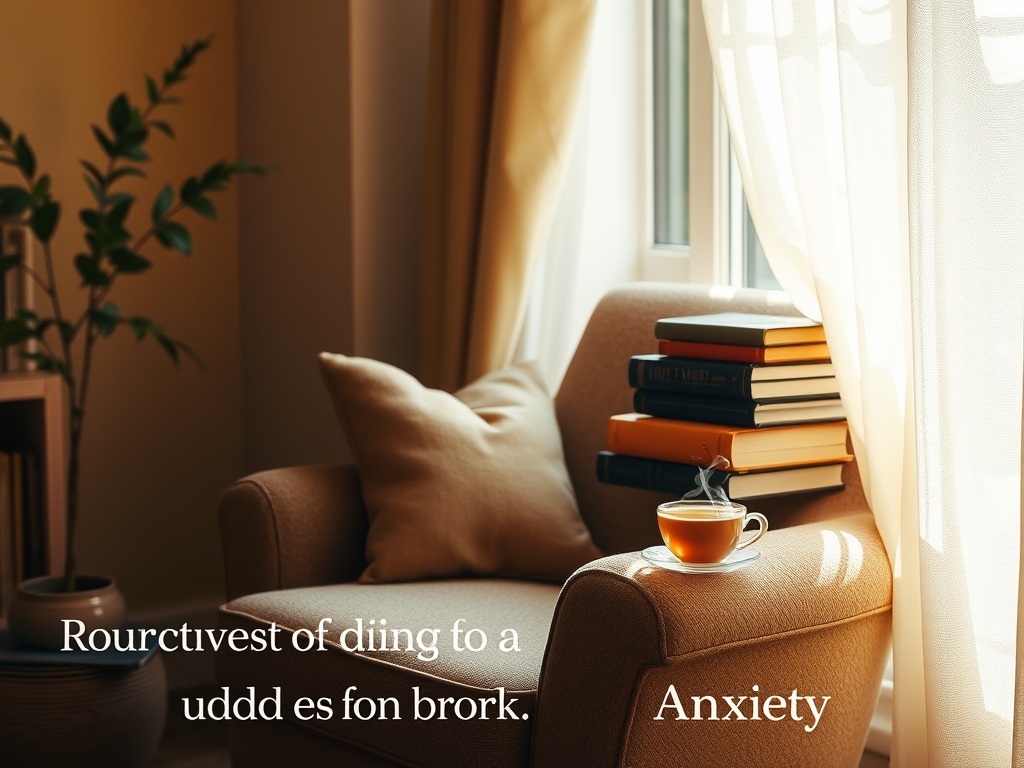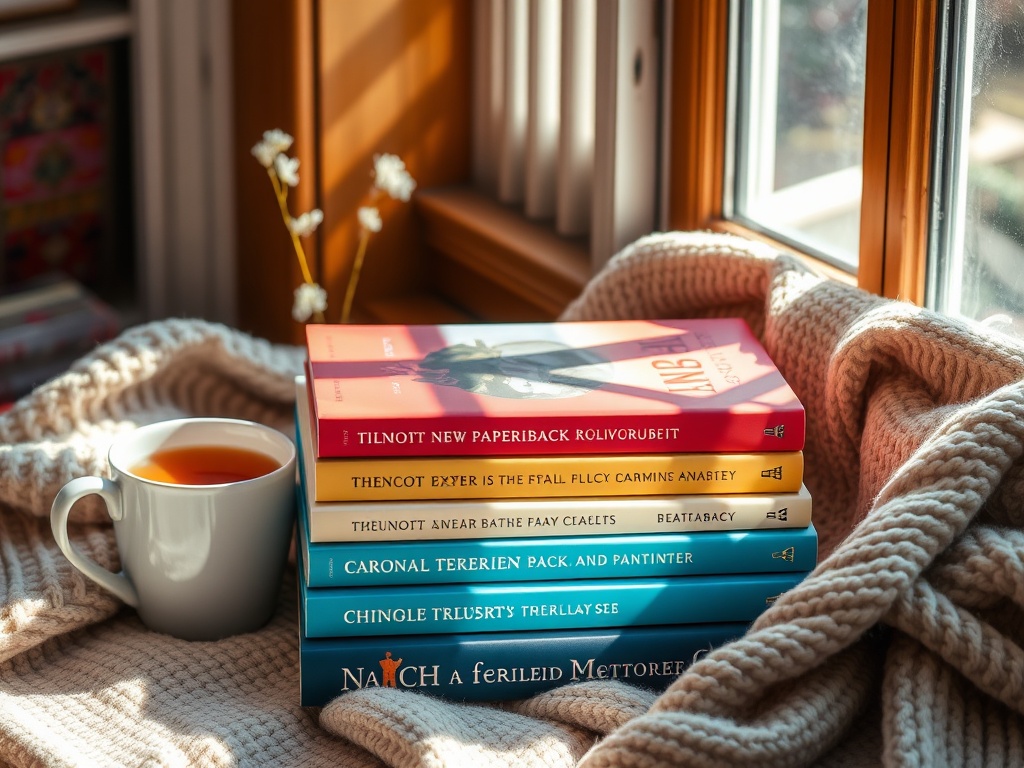Owen O’Kane: A New Perspective on Anxiety
Owen O’Kane is bracing himself for the potential backlash from his latest book on anxiety. Having authored three bestsellers on mental health and boasting a 30-year career as a psychotherapist, he is no stranger to the complexities of this subject. His own experiences with anxiety—growing up gay in a Catholic community in Belfast during the Troubles—have profoundly shaped his understanding. It was a time when anxiety felt justified, he shares during our conversation leading up to the book’s release. However, even after relocating to London as a young adult, where he found relative safety from violence and discrimination, the persistent worry that plagued him didn’t just vanish. Over the years, he has learned to coexist with his anxiety, embracing it rather than attempting to suppress it. He advocates for an inquisitive approach towards common anxious feelings such as fear, dread, and catastrophizing, rather than avoiding or denying their presence.
Understanding Anxiety as an Ally

In Addicted to Anxiety, O’Kane challenges the prevailing notion that anxiety is an adversary. “Most people view anxiety as an enemy,” he writes. “This perspective is unhelpful… Its aim is to protect you, but it often creates significant distress. I believe many individuals become addicted to the process of anxiety because it promises safety, reduced risk, and protection.” This early encounter with anxiety has informed O’Kane’s career, enabling him to forge genuine connections with clients by sharing his own human experiences. He emphasizes that the therapeutic relationship is the cornerstone of effective therapy, a methodology that has garnered him numerous high-profile endorsements. While he refrains from disclosing specific clients, public figures like Davina McCall, Lewis Capaldi, Matt Willis, Fearne Cotton, Rob Rinder, and Will Young have all praised his work.
Controversial Claims and New Insights
O’Kane’s central argument in Addicted to Anxiety is undeniably provocative. According to the Mental Health Foundation, around 60 percent of British adults experience anxiety on a weekly basis. Is O’Kane suggesting that all these individuals find pleasure in their recurring bouts of worry, akin to indulging in a glass of wine or a shopping spree? “I’m very aware that the title might cause some to catch their breath,” he admits. “But I think anxiety has never been framed as an addiction before. For many, the process of anxiety can indeed become quite addictive. This isn’t an official diagnosis; it’s not a widely discussed topic in addiction circles. There are no dedicated recovery groups for this. The addiction stems from the psychological processes linked to anxiety.”
Critique of Modern Healing Practices
The rising tide of anxiety among the population has also led to a surge in unqualified healers. O’Kane expresses frustration towards self-proclaimed TikTok “therapists,” misleading advice, and online gurus lacking proper credentials. He recalls a well-meaning trainer at his gym who offered anxiety management tips that contradicted established clinical evidence, suggesting individuals stay in bed during tough days. “That might feel comforting in the moment,” O’Kane explains, “but by retreating, you only receive a temporary hit.” He emphasizes that anxiety is not something that can be eradicated overnight or simply managed through mantras. “You’ll likely have anxiety for life. My goal is to provide something truthful and realistic, helping people learn to coexist with their anxiety.”
The Promise of Anxiety
O’Kane draws a fascinating connection between anxiety and addiction. “Think about anything people become addicted to,” he notes. “It often comes with a promise. It offers safety, escapism, and numbs pain. Anxiety, while more subtle, also comes with a powerful promise: ‘If you heed me, I will keep you safe. I will protect you.’” As I delve into Addicted to Anxiety, initially, I suspect the title might be a mere gimmick. However, after reading it cover-to-cover within a day and hearing O’Kane articulate his views, the concept resonates. His writing is as approachable, reassuring, and authoritative on paper as he is in person.
Empowerment Through Understanding
For those unfamiliar with therapeutic concepts, O’Kane’s writing is refreshingly accessible. The chapters are concise and digestible, consistently reinforcing the idea that individuals are not mere victims of anxiety. O’Kane empowers readers by emphasizing their ability to manage their feelings, guiding them on when to confront their anxiety and when to let it go.
The Nuances of Anxiety Addiction
When discussing the differences between anxiety and other forms of addiction, such as substances or gambling, I ask O’Kane if the “hit” from anxiety is comparable. He insists, “You do experience a hit, just of a different kind. If you remain tied to the process of anxiety, what is the impact on your life? You might shy away from promotions, avoid dating, or even resist going on holiday. I’m currently working with a young man who is unable to enter a car due to his anxiety.”
He elaborates, “The immediate relief that anxiety provides, through avoidance, creates a false sense of safety. That’s where the hit resides— in the temporary comfort of not confronting what frightens you.” Addicted to Anxiety does not present a quick-fix solution. Instead, it argues that attempting to “cure” anxiety is misguided. The goal should be to recognize and accept anxious thoughts. The opening chapter invites readers to meet their anxious selves, a concept that may initially seem awkward, akin to self-affirmation.
Confronting Anxiety Head-On
O’Kane notes that many people avoid this critical first step, reluctant to acknowledge their anxiety as part of their identity. He recalls a moment from an anxiety support group he led while working with the NHS: “One man, a former drug addict grappling with residual anxiety and mood issues, chuckled and said, ‘Fking hell. I thought quitting drugs was tough. This [facing his anxiety] is even harder. I’m hooked.’”
The Journey of Self-Discovery
When I question the feasibility of overcoming such deeply ingrained anxiety, O’Kane reassures me: “We often perceive anxiety as something that happens to us, yet we seldom reflect on our role in perpetuating it. We become attached and overly identified with our anxious thoughts, feelings, and behaviors.” To assist readers in this journey, O’Kane has crafted workshop-style sections throughout the book, covering topics such as recognizing anxious thoughts, calming the mind, and steps to deactivate physical anxiety, along with strategies to break unhealthy habits.
While I wish there were straightforward tips to share with The i Paper readers, O’Kane emphasizes that there is no magic solution. “You are the expert on your own anxiety. You have the ability to observe it and understand its influence,” he states. Currently, he is closely monitoring his personal anxious tendencies, especially with a book launch and public speaking engagements on the horizon. With a smile, he concludes, “It’s incredibly liberating when you realize that cortisol—the hormone triggered by anxiety—can energize you and keep you focused and passionate, without spiraling into the urge to escape or freeze.”
Addicted to Anxiety by Owen O’Kane (Penguin, £18.99) is available now.




